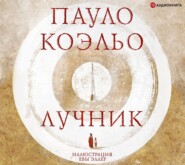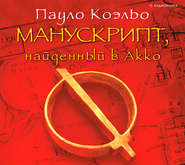По всем вопросам обращайтесь на: info@litportal.ru
(©) 2003-2024.
✖
The Zahir: A Novel of Obsession
Автор
Год написания книги
2018
Настройки чтения
Размер шрифта
Высота строк
Поля
Ariadne’s thread (#litres_trial_promo)
I am born in a small village… (#litres_trial_promo)
‘Right… (#litres_trial_promo)
Zagreb, Croatia. 6.30 a.m. (#litres_trial_promo)
I have to write an important article… (#litres_trial_promo)
‘Last week… (#litres_trial_promo)
I hear the applause… (#litres_trial_promo)
I arrived in a gloomy part of… (#litres_trial_promo)
‘You seem strange’… (#litres_trial_promo)
Ah… (#litres_trial_promo)
Later that afternoon… (#litres_trial_promo)
It takes twenty minutes for the taxi… (#litres_trial_promo)
‘How was it on your table’… (#litres_trial_promo)
The Return to Ithaca (#litres_trial_promo)
‘We’ll sleep here tonight and… (#litres_trial_promo)
The following day… (#litres_trial_promo)
‘What’s happening? Isn’t it light yet?’… (#litres_trial_promo)
The furious wind is abating… (#litres_trial_promo)
I am filthy… (#litres_trial_promo)
Although I know that I may have… (#litres_trial_promo)
Author’s Note (#litres_trial_promo)
More about Paulo Coelho and The Zahir (#litres_trial_promo)
A Conversation with Paulo Coelho (#litres_trial_promo)
Author Biography: Paulo Coelho (#litres_trial_promo)
Like the Flowing River (#litres_trial_promo)
Also by Paulo Coelho (#litres_trial_promo)
Copyright (#litres_trial_promo)
About the Publisher (#litres_trial_promo)
Ithaca (#ulink_5baf48f9-72c4-57e4-8d7a-f6f2c1fbcb3d)
When you set out on your journey to Ithaca, pray that the road is long, full of adventure, full of knowledge. The Lestrygonians and the Cyclops, the angry Poseidon – do not fear them: You will never find such as these on your path if your thoughts remain lofty, if a fine emotion touches your spirit and your body. The Lestrygonians and the Cyclops, the fierce Poseidon you will never encounter, if you do not carry them within your soul, if your heart does not set them up before you.
Pray that the road is long. That the summer mornings are many, when, with such pleasure, with such joy you will enter ports seen for the first time; stop at Phoenician markets, and purchase fine merchandise, mother-of-pearl and coral, amber and ebony, and sensual perfumes of all kinds, as many sensual perfumes as you can; visit many Egyptian cities, to learn and learn from scholars.
Always keep Ithaca in your mind. To arrive there is your ultimate goal. But do not hurry the voyage at all. It is better to let it last for many years; and to anchor at the island when you are old, rich with all you have gained on the way, not expecting that Ithaca will offer you riches. Ithaca has given you the beautiful voyage. Without her you would never have set out on the road. She has nothing more to give you.
And if you find her poor, Ithaca has not deceived you. Wise as you have become, with so much experience, you must already have understood what Ithacas mean.
Constantine Cavafy (1863–1933), translated by Rae Dalven
Prologues (#ulink_1ae7796a-f72e-5a79-b8bb-bd99c0abbbde)
According to the writer Jorge Luis Borges, the idea of the Zahir comes from Islamic tradition and is thought to have arisen at some point in the eighteenth century. Zahir, in Arabic, means visible, present, incapable of going unnoticed. It is someone or something which, once we have come into contact with them or it, gradually occupies our every thought, until we can think of nothing else. This can be considered either a state of holiness or of madness.
Faubourg Saint-Pères, Encyclopaedia of the Fantastic (1953)
I am a Free Man (#ulink_06b904b6-6b76-5221-ac84-d0e7703aad4b)
Her name is Esther; (#ulink_08f731f6-6f54-5ebd-8136-472db380b851) she is a war correspondent who has just returned from Iraq because of the imminent invasion of that country; she is thirty years old, married, without children. He is an unidentified male, between twenty-three and twenty-five years old, with dark, Mongolian features. The two were last seen in a café in Rue Faubourg St-Honoré.
The police were told that they had met before, although no one knew how often: Esther had always said that the man – who concealed his true identity behind the name Mikhail – was someone very important, although she had never explained whether he was important for her career as a journalist or for her as a woman.
The police began a formal investigation. Various theories were put forward – kidnapping, blackmail, a kidnapping that had ended in murder – none of which were beyond the bounds of possibility given that, in her search for information, her work brought her into frequent contact with people who had links with terrorist cells. They discovered that, in the weeks prior to her disappearance, regular sums of money had been withdrawn from her bank account: those in charge of the investigation felt that these could have been payments made for information. She had taken no change of clothes with her, but, oddly enough, her passport was nowhere to be found.
He is a stranger, very young, with no police record, with no clue as to his identity.
She is Esther, thirty years old, the winner of two international prizes for journalism, and married.
My wife.
I immediately come under suspicion and am (#ulink_fb9981dd-4f30-55df-b831-a759b3fa622f) detained because I refuse to say where I was on the day she disappeared. However, a prison officer has just opened the door of my cell, saying that I’m a free man.
And why am I a free man? Because nowadays, everyone knows everything about everyone; you just have to ask and the information is there: where you’ve used your credit card, where you spend your time, who you’ve slept with. In my case, it was even easier: a woman, another journalist, a friend of my wife, and divorced – which is why she doesn’t mind revealing that she slept with me – came forward as a witness in my favour when she heard that I had been detained. She provided concrete proof that I was with her on the day and the night of Esther’s disappearance.
I talk to the chief inspector, who returns my belongings and offers his apologies, adding that my rapid detention was entirely within the law, and that I have no grounds on which to accuse or sue the State. I say that I haven’t the slightest intention of doing either of those things, that I am perfectly aware that we are all under constant suspicion and under twenty-four-hour surveillance, even when we have committed no crime.
‘You’re free to go,’ he says, echoing the words of the prison officer.
I ask: Isn’t it possible that something really has happened to my wife? She had said to me once that – understandably given her vast network of contacts in the terrorist underworld – she occasionally got the feeling she was being followed.
The inspector changes the subject. I insist, but he says nothing.

















